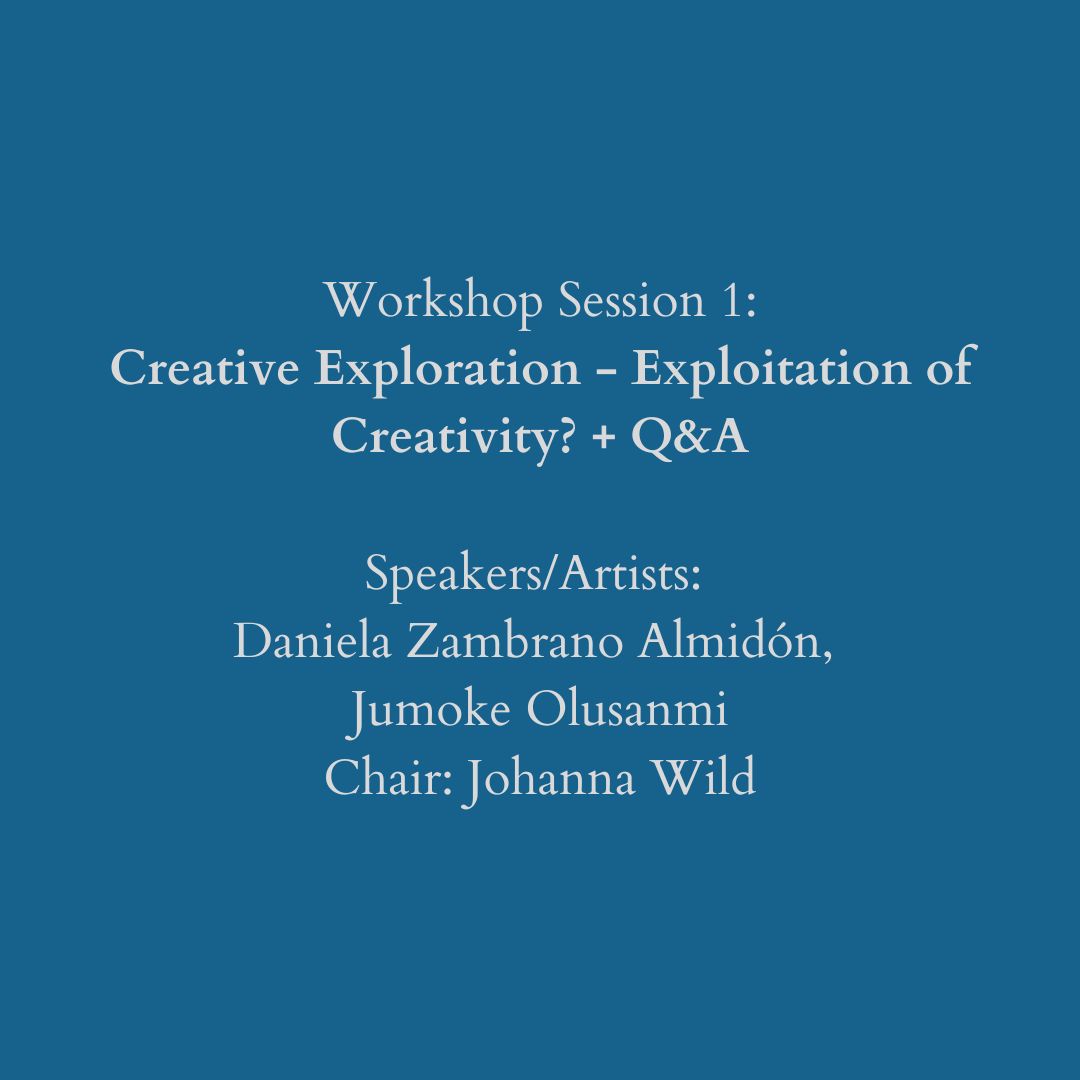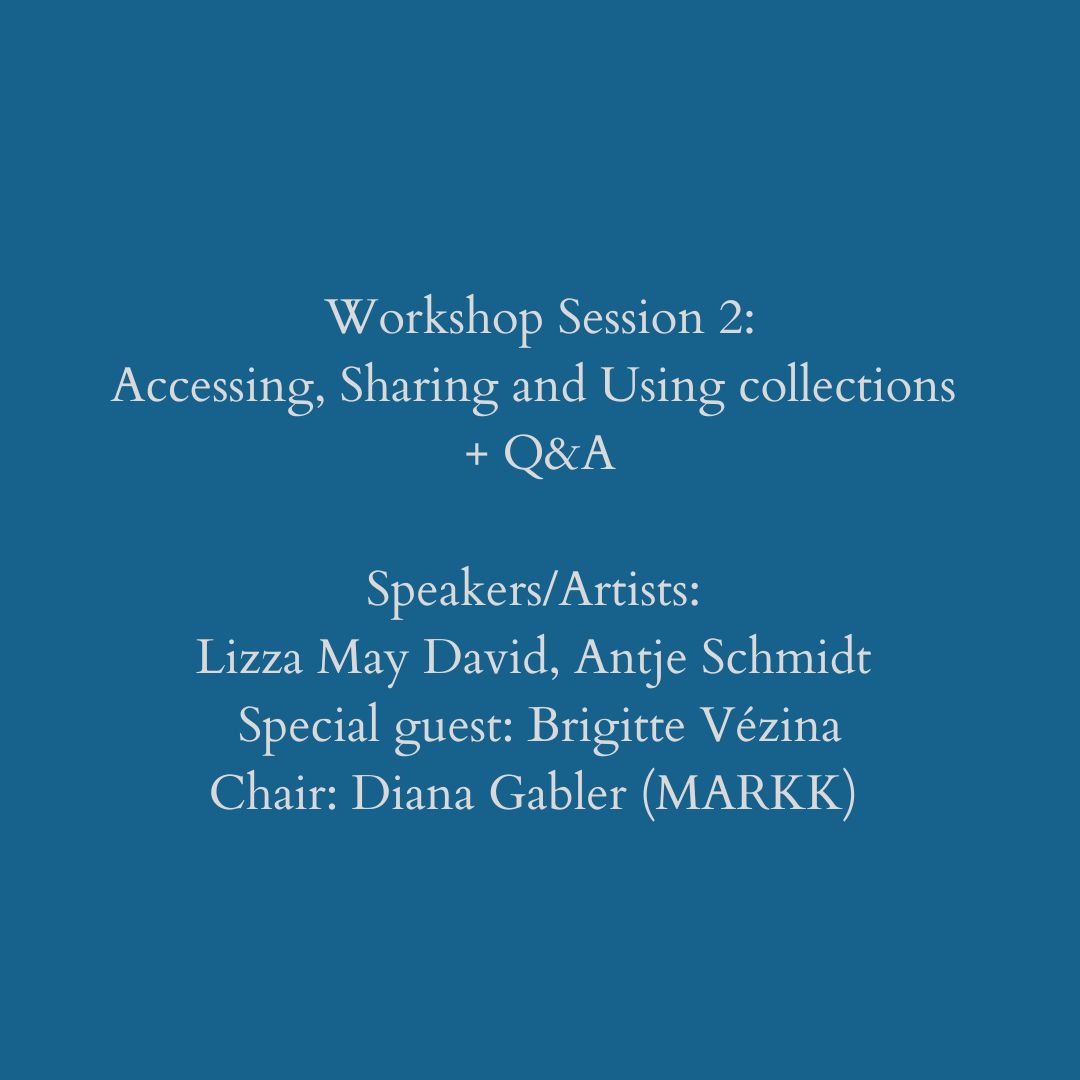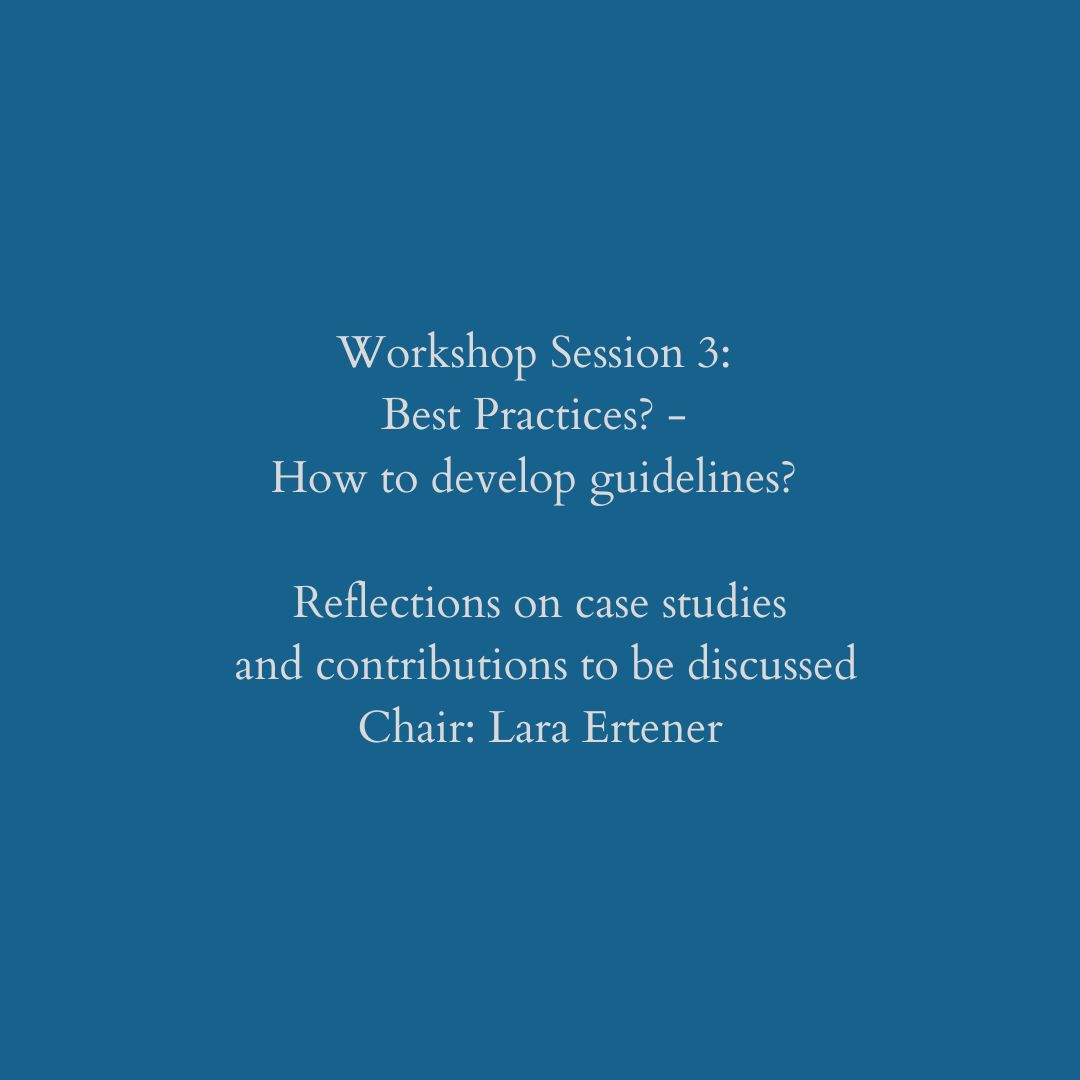
The »Design, Material Technology and Questions of Intellectual Ownership and Collective Copyrights« workshop hosted by the Museum am Rothenbaum - Kulturen und Künste der Welt (MARKK) in Hamburg (more here) continued on Friday with two sessions focusing on specific case studies and projects.
The first session explored the ways artists work with the potential of ethnographic collections in all their varieties. It reflected on the interactions and the visions that guide artistic expressions based on, or inspired by, Indigenous intellectual property, as well as their impact on these communities.
Daniela Zambrano Almidón and Jumoke Olusanmi presented their artistic projects and referred to their experiences with museum collections. They gave insights into their work based on a personal engagement with cultural heritage. Jumoke Olusanmi spoke about her participation in “Re-Enactment of Things”, a project bringing together female perspectives on decolonisation and focussing on looted objects, as well as her very personal approach to the Egungun masks for her exhibition “Silent Masquerade”, for which she visited the MARKK’s archives.
Daniela Zambrano Almidón is involved as an artist and activist for Decolonize M21. She combines decentralized, intercultural approaches in her art projects, linking regional environmental activists and artists.
The discussion dwelt on the strategies museums could follow when they do not know if something can be put in the realm of open access – a question that had been raised the day before. Jumoke Olusanmi pleaded for physical access to the collection, especially for members of the objects’ societies of origin, and for museums to enable personal connections to those objects. Daniela Zambrano Almidón drew attention to the fact that it is important for the societies of origin and for the museums to build relationships and to focus on a more decentralised partnership because one person or institution cannot speak for a whole society.
More information on Jumoke Olunsanmi,
on the Re-Enactment of Things project events
and Daniela
Zambrano Almidón

The second session addressed strategies and collaborative ways of making collections available. Attention was drawn to digital initiatives in accessing and transforming collections. How can these approaches support diversification in knowledge production, alter agencies, and accommodate respectful engagement with expressions of Indigenous cultures?
In recent years, there have been numerous attempts to digitally process and make the content of museums' collections accessible. The speakers Lizza May David and Dr. Antje Schmidt (Head of Digital Strategy, MK&G) respectively presented examples of current projects: Mapping Philippine Material Culture and NEO-Collections were built on these experiences and increasingly rely on networked and collaborative approaches. In addition, special guest Brigitte Vézina answered practical questions from the auditorium.
More information on Mapping Philippine Material Culture,
Lizza May David,
#NeoCollections,
MK&G Projects

The third and last session opened up for contributions and comments of the participants:
Dr. Bettina Zorn from the Weltmuseum Wien presented case studies in which fashion designers used Chinese clothing styles and ornamentation reserved for the Chinese Imperial family in their designs. This drew attention to aspects of commercial exploitation and the use of design.
The session served to condense the previous discussion points and proposals into keywords that could be used in order to develop practical strategies for the future. The workshop participants wrote their thoughts on cards and arranged under the following categories: positions, strategies and measures. A further category, open questions and needs, became visible and possible strategies and suggestions emerged.
Specific topics considered relevant for the development of a strategy to make ethnographic collections (digitally) accessible in an appropriate way were crystalized. Throughout the different institutions, a lack of resources in order to build up the digital infrastructure, especially in terms of funding, digital know-how and personnel, is widely felt. In addition, achieving a wide digital range and building collaborations based on trust require long-term commitment and care. Networks with societies of origin and members of the diaspora are essential for the future of ethnographic museums. Unfortunately, the identification of stakeholders is sometimes problematic as there are not always lists of official First Nations and community representatives or agencies. The question of which group or person has legitimacy to speak for or about an object is often complicated or conflicted.
It is important to acknowledge vulnerable voices and voices with limited power or expression. If restrictions of access turn out to be necessary, transparency about the conditions should be communicated. Strategies for dealing with knock-on effects (e.g. more requests for visits, digital returns, requests for public relations, feedback on collections) must also be considered.
The workshop closed with these impulses, which
served as a platform for all participants to exchange ideas on these issues
that are central to all institutions. At the MARKK, it will be used as an
opportunity to think about digital processing and the provision of collections
in a strategic way.
Text was edited by Lara Selin Ertener